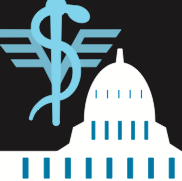Conservative opposition to the Affordable Care Act is old news. Even after the Supreme Court ruling last year, it was quickly established that–given the option–many traditionally Republican states would not be participating in the Medicaid expansion. I’ve written before about the irony that the very states choosing to opt-out of the Medicaid expansion are the ones who would benefit from it the most, because a higher proportion of their population is uninsured, their residents’ health is generally worse, and the amount of federal matching funds they’d bring into their states is higher.
Conservative opposition to the Affordable Care Act is old news. Even after the Supreme Court ruling last year, it was quickly established that–given the option–many traditionally Republican states would not be participating in the Medicaid expansion. I’ve written before about the irony that the very states choosing to opt-out of the Medicaid expansion are the ones who would benefit from it the most, because a higher proportion of their population is uninsured, their residents’ health is generally worse, and the amount of federal matching funds they’d bring into their states is higher. But new research from the RAND Corporation puts a price tag on the states’ decision to opt-out and it has me wondering if what we’re seeing isn’t just farsighted politics at its best. Let me explain.
In a recent Health Affairs article, Carter Price and Christine Eibner report the results of a microsimulation model to predict insurance coverage and federal and state spending under several different scenarios tied to the Medicaid expansion. They find that if the 14 states currently vowing to opt-out of the Medicaid expansion keep their word, there will be a number of consequences compared to a scenario in which all states participate in the expansion. First, there will be an additional 3.6 million persons who remain uninsured. Second, the Federal government will save about $8.4 billion. That figure comes about because the Feds will spend $21.3 billion less on Medicaid (remember, fewer people are enrolled), but $11.2 billion more on subsidizing premiums for individuals who would have been eligible for Medicaid but instead ended up enrolling in the health insurance exchange, and $1.7 billion more on uncompensated care. Third, and finally, states that opt-out will lose out on $1 billion, because while their Medicaid costs decrease slightly, they will also have to pick up the tab for uncompensated care when Federal disproportionate share hospital payments are cut.
If you assume that these effects are spread evenly over the 14 non-participating states (they’re not, of course), it works out to the following: $71,428,571 per state in additional state spending for 257,143 fewer persons with insurance. In other words, each state is willing to pay about $278 for a person not to be insured. According to the Kaiser Family Foundation, in 2009, the average amount paid per Medicaid enrollee per year was $5,527. Thus, by 2020, when states would be responsible for 10% of these costs, that would equal $553. The conclusion: states would rather limit their total spending to $278 per person and get nothing in return, than pay an additional $275 so that each person could have health insurance, and face the possibility that that amount could increase over time.
But I think there’s a bit more to it than that. As the authors write: “The decision to expand Medicaid would not have substantial effects on state budgets prior to 2017.” What we are seeing is less about math, and more about politics. First, with the mid-term elections in 2014, the GOP is hoping that the health insurance exchanges that will begin enrollment in October of this year will be a disaster and that they will pick up seats in Congress as a result. Then, with the Presidential election in 2016, the GOP is hoping that their resistance to the Medicaid expansion will have caused further disruptions to the implementation of “Obamacare” and they will be able to leverage that to win the White House. If they are successful on both counts, they may find that they are closer to repealing or seriously dismantling the Affordable Care Act. That matters to them. A lot. And they’re willing to gamble away billions of dollars in Federal matching funds in the hope that doing so will reclaim the Senate and the Presidency for Republicans. If at least one of those things doesn’t happen, I think you’ll see at least some states have a change of heart in 2017, and opt-in to the Medicaid expansion at that later date.
image: USHealth/shutterstock

